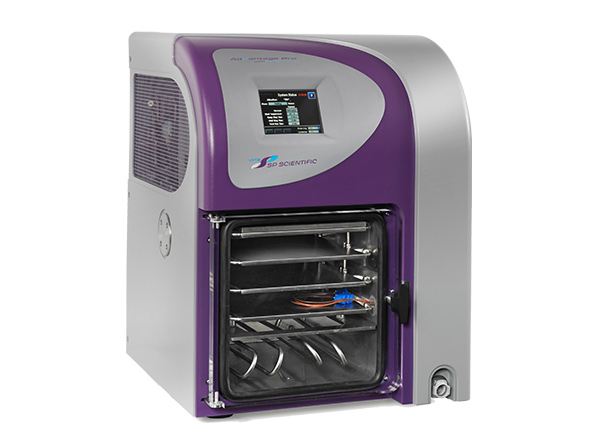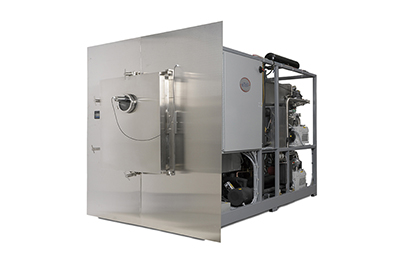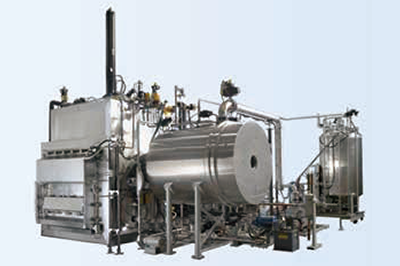

measurements and a well-established heat and mass transfer model describing freeze drying, users can obtain information about Key Process Parameters (KPPs) affecting end product quality. The Physical Sciences Inc. (PSI) TDLAS based sensor, LyoFlux, measures water vapor concentration and gas flow velocity in the spool connecting a freeze-dryer chamber and condenser. The near-IR spectrometer provides real-time measurements of water concentration and gas flow velocity that are used to determine the water mass flux (grams/second/cm2) in the spool. The flux measurements are combined with knowledge of the spool cross sectional area to provide a determination of the water vapor flow (grams/second) exiting the product drying chamber.1The flow measurements are integrated during the product drying cycle to provide a determination of the total water removed (grams). The sensor control electronics and near-IR light source are designed to be remotely located from the sensor head. Communication between the sensor control unit (SCU) and the optical measurement interface is achieved using fiber optic and electronic signal cabling. The sensor hardware and software are designed for automatic sensor operation on power-up, providing continuous measurements with limited user interaction. The monitor is designed for 24/7 operation using robust telecommunications-grade optics and periodic system health monitoring to ensure accurate flow rate measurements.














